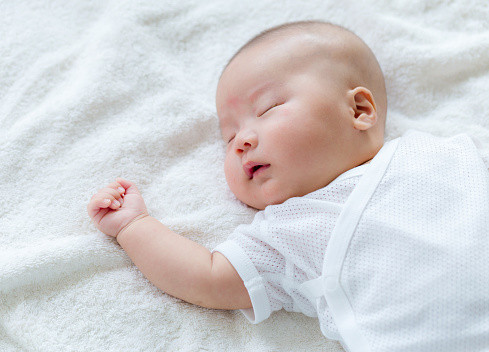
When China's population fell last year for the first time in sixty years, a member of the country's top political advisory committee said she would recommend allowing unmarried women access to egg freezing as a way to protect their fertility.
The upcoming Chinese People's Political Consultative Conference (CPPCC), which begins on Mar. 4, will feature proposals from Lu Weiying, a member of China's top political advisory body, to include infertility treatments in the public health insurance system.
Lu Weiying made this statement to the state-backed Global Times.
According to Lu, a fertility doctor in China's southern Hainan province, giving single women access to freezing their eggs enables them "to preserve the eggs before they pass their peak reproductive years.
The woman still needs to get married if she wants to use her frozen eggs and get pregnant in the future," she told the Global Times.
For unmarried women in China, fertility procedures like in vitro fertilization (IVF) and egg freezing are currently illegal, Reuters reported.
Lu's suggestions coincide with efforts by the government to increase birth rates through incentives such as maternity leave expansion, financial and tax benefits for having children, and housing subsidies.
🇨🇳 As China's birth rate slumps, political advisor urges egg freezing for single women
— PiQ (@PriapusIQ) February 28, 2023
Currently fertility treatments such as in IVF and egg freezing in China are banned for unmarried women.
Last year, China recorded its lowest ever birth rate, of 6.77 births per 1,000 people.
To increase birth rates, some provinces have already changed their laws.
The northeastern Chinese province of Jilin, which has one of the lowest birth rates in the nation, changed its regulations in 2002 to allow single women to obtain IVF, but the change had little effect because the National Health Commission of China still forbids the procedure nationwide.
While fertility rates are falling in nine of the world's ten most populous countries, China's fertility rate of 1.18 in 2022 was the lowest and much below the 2.1 OECD standard for a stable population.
The official release of China's 2022 fertility statistics is still pending.
Much of China's demographic downturn is the result of China's one-child policy imposed between 1980 and 2015 as well as the high cost of education.
The Chinese government implemented a one-child policy for 35 years (1980 to 2015) and compelled millions of women to forced contraception, forced sterilization, and forced abortion, reports Business Insider.
Due to plummeting birth rates, the government wanted women to have more children and swiftly moved from a one to two-child policy in 2016.
But that too failed to yield the desired results.
However, the government swiftly moved to a three-child policy in 2021 and offered tax cuts, subsidies, cash rewards and other incentives.
The Voice Against Autocracy reported that none of these has worked so far and China's birth rate continues to drop.
A 2020 study, on the impact of family planning policy changes on urban women, reported that 45 percent of respondents said their employment was negatively affected by pregnancy or childrearing.
Over one-third of women reported financial loss, and more than 20 percent described losing opportunities for training or promotions.
Another 13 percent said they were fired or forced to resign, and eight percent said they experienced demotion.
China has cleverly constructed an eco-system to guarantee that the fertility rate rises. In order for couples of reproductive ages to adhere to the three-child policy, incentives are provided.
The reality, however, is different from what the government had anticipated.
China recorded its lowest-ever birth rate in 2017 with 6.77 births per 1,000 people.
However, the government should implement policies that eliminate discriminatory gender norms surrounding childcare responsibilities, expand parental leave protections for both men and women who wish to take them, and guarantee the accessibility and affordability of childcare and other forms of professional caregiving.
According to the essay in the new collection from the Global Institute for Women's Leadership, the government must most importantly end the three-child restriction because birth restrictions, regardless of their number, fundamentally violate women's reproductive rights and bodily autonomy.
© 2025 Latin Times. All rights reserved. Do not reproduce without permission.




